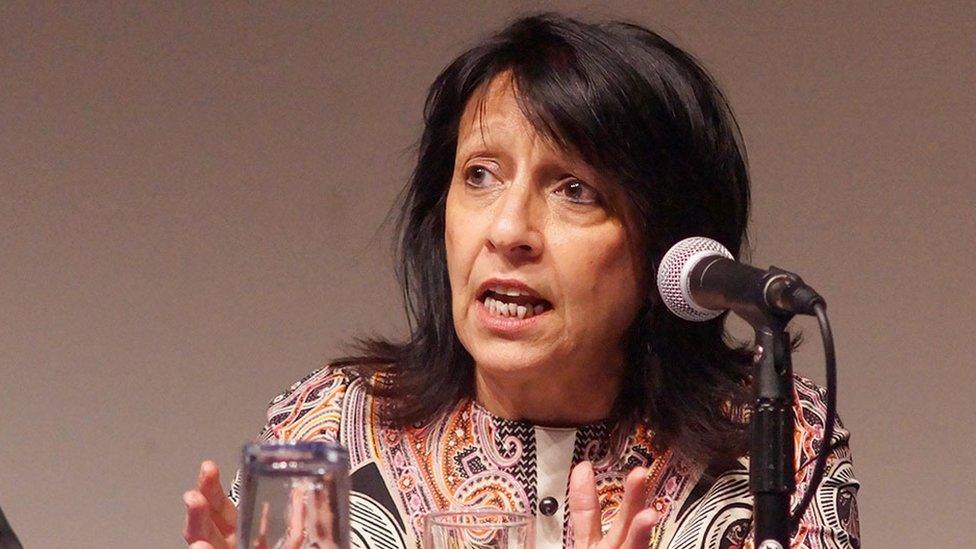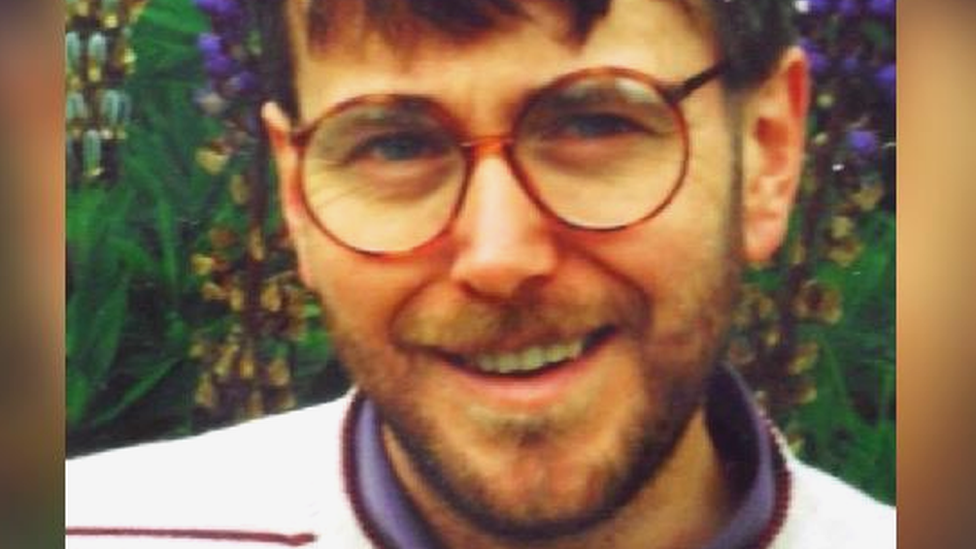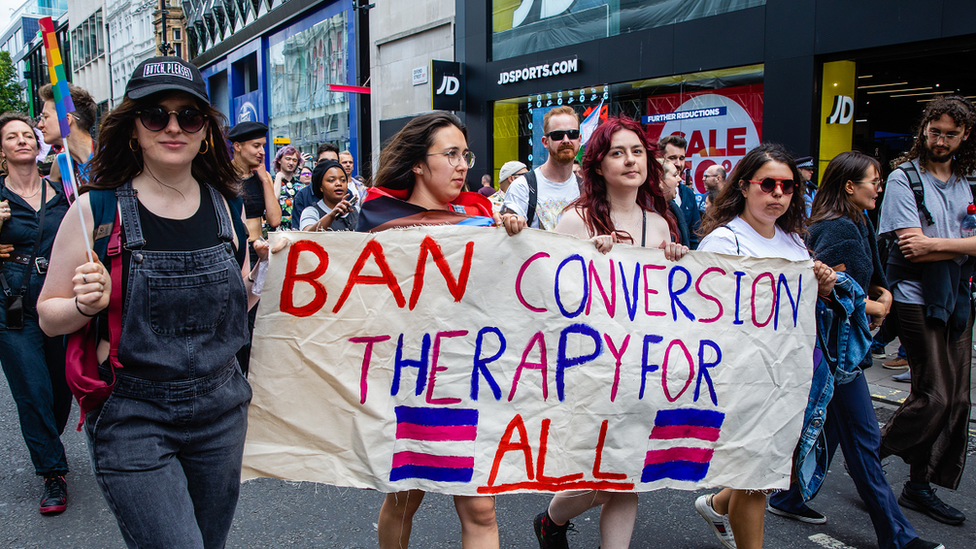Conversion therapy: Equality watchdog calls for ban
- Published

Baroness Falkner, head of the Equality and Human Rights Commission, has written to Women and Equalities minister Kemi Badenoch
Britain's equality watchdog has called on the government to ban "harmful" conversion-therapy practices.
The Equality and Human Rights Commission (EHRC) says legislation to outlaw conversion therapy should be included in the King's Speech next month.
Conversion therapy is a practice which seeks to change or suppress someone's sexual orientation or gender identity.
Campaigners have stepped up demands for a ban in the past five years.
The government first promised the practice would be outlawed in England and Wales in 2018.
But since then there have been several delays and U-turns, with the government saying in January 2023 that it would "shortly" publish a draft bill.
Thorough scrutiny 'imperative'
Baroness Kishwer Falkner, who chairs the commission, has now written to Women and Equalities Minister Kemi Badenoch insisting the legislation "is needed".
The letter, external states: "Legislation to ban harmful conversion practices is needed, and... thorough and detailed scrutiny remains imperative to ensure that any ban is fully effective in protecting people with the protected characteristics of sexual orientation and gender reassignment from harm, while avoiding any unintended consequences.
"As such, I hope to see this legislation in the forthcoming King's Speech."
Baroness Falkner acknowledged it was a "complex and sensitive area, with the potential to have wide-ranging impacts", and said therefore, any legislation should be "carefully considered to ensure it uses clear terminology and definitions and is proportionate and evidence-based".
She added that she hoped any legislation would be mentioned in the next King's Speech, due to take place in November, when the government highlights its priorities for the months ahead.
Responding to the government's consultation, external to ban conversion therapy in 2022, the EHRC previously recommended that any legislation should initially focus on practices that aimed to change a person's sexual orientation, rather than gender identity, due to what it called a "lack of evidence" and concerns that it could prevent people accessing "appropriate support".
Theresa May's government first vowed to ban conversion practices in July 2018 after a survey of 108,000 members of the LGBT community, external suggested 2% had undergone the practice and another 5% offered it.
In March 2022, then-Prime Minister Boris Johnson dropped plans for the legislation, later defending a decision not to include trans people by saying there were "complexities and sensitivities" to be worked through.
In January of this year, the government said it would ban conversion therapy for "everyone", including transgender people.
The Scottish government has promised to launch a consultation into banning the practice.
Some groups, including the Evangelical Alliance, which says it represents 3,500 churches, have argued a ban on conversion therapy could restrict religious freedoms. However, many other religious leaders support a ban.
Earlier this month, shadow women and equalities secretary Anneliese Dodds said a "no loopholes" trans-inclusive ban on conversion therapy would be introduced under a Labour government.
A government spokesman said: "No-one in this country should be harmed or harassed for who they are, and attempts at so-called conversion therapy are abhorrent. That is why we are carefully considering this very complex issue."
Related topics
- Published5 March 2023

- Published17 January 2023
